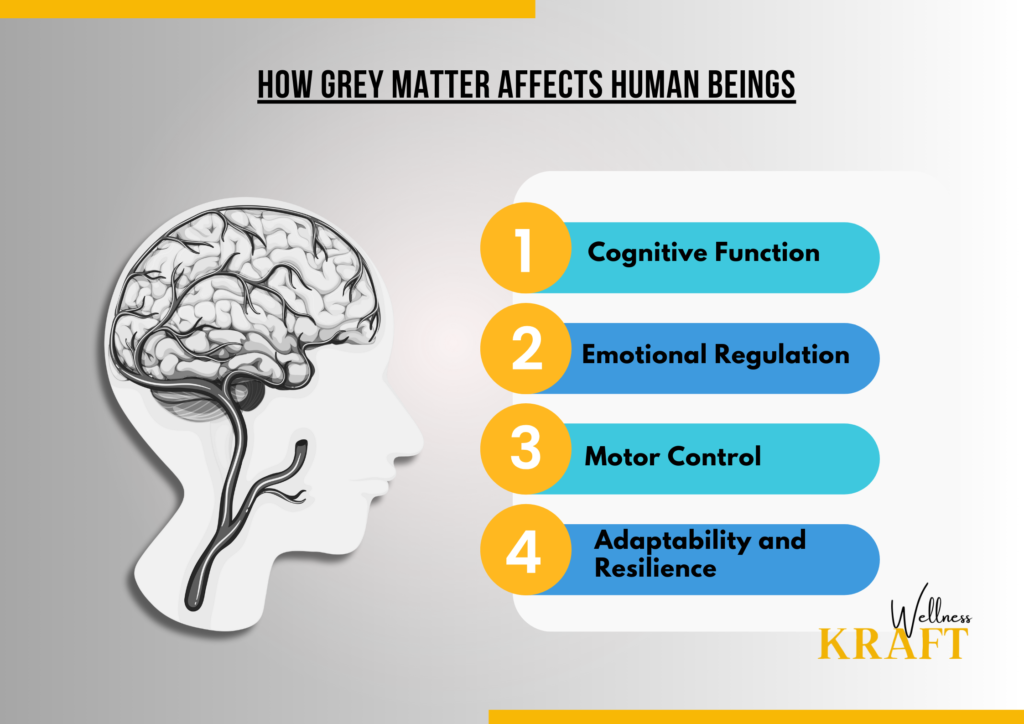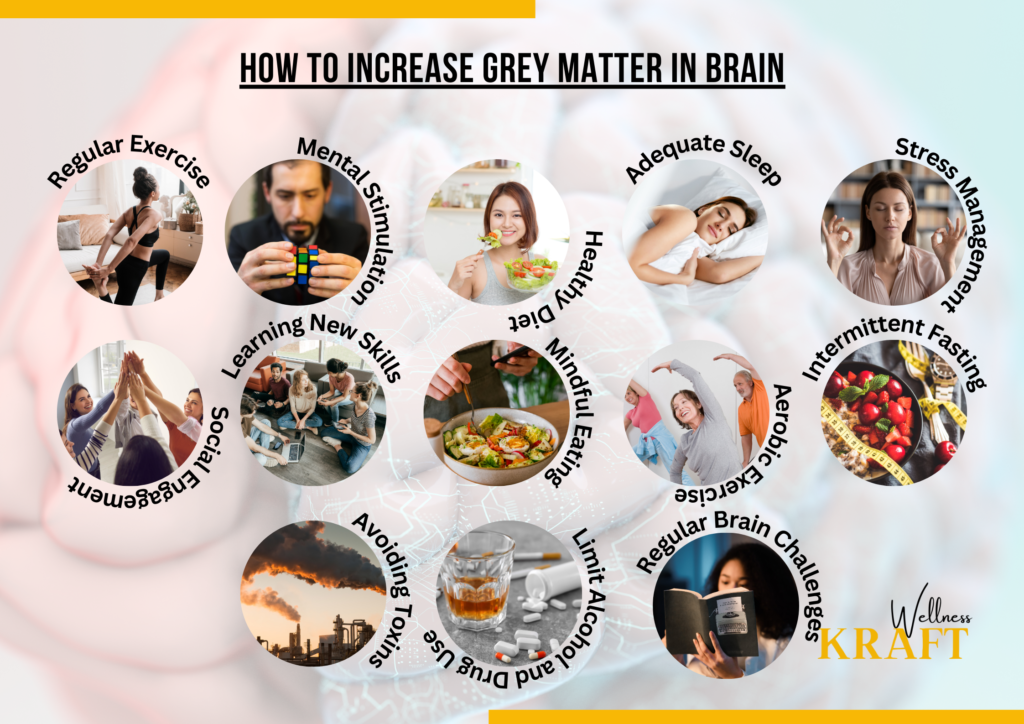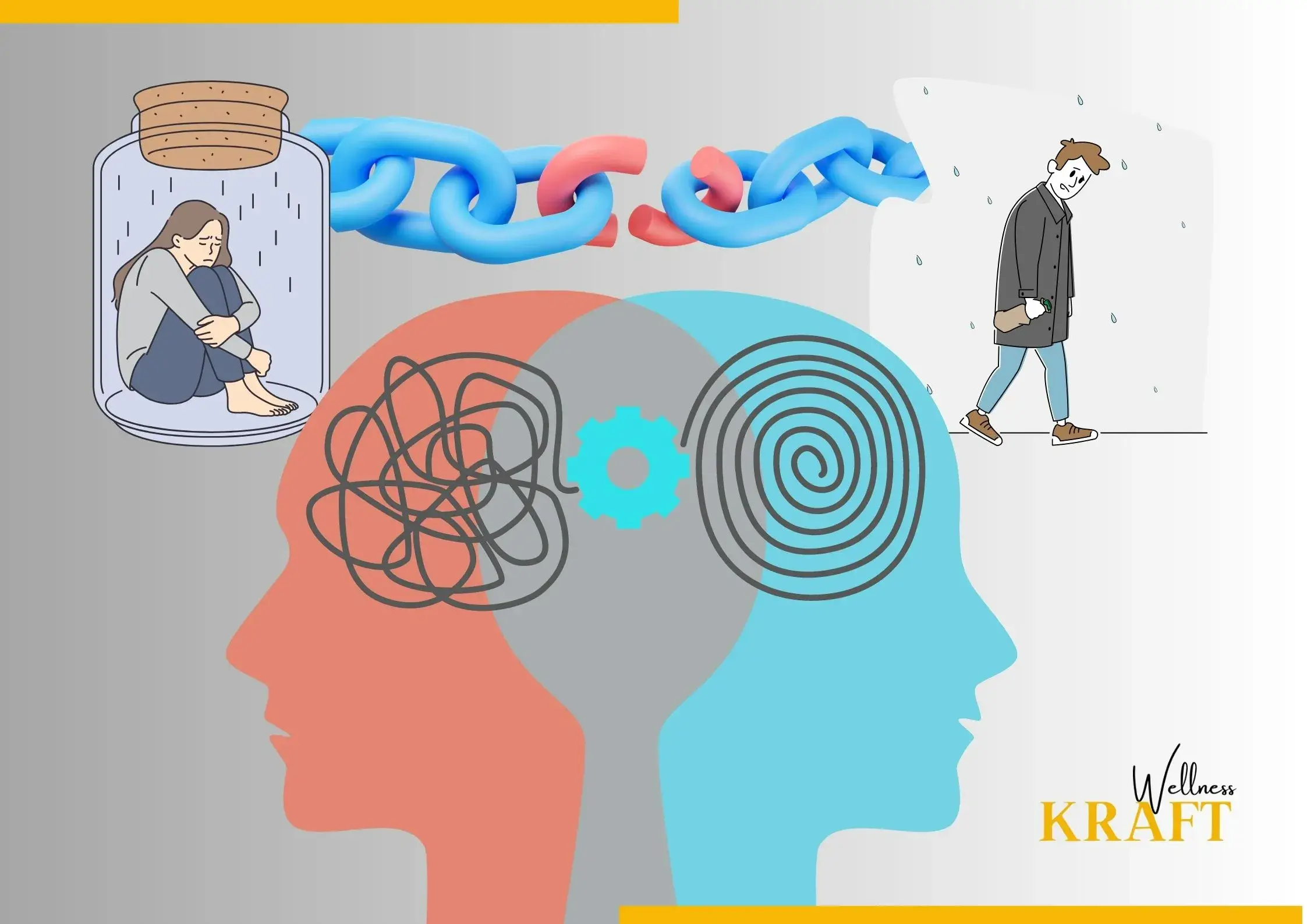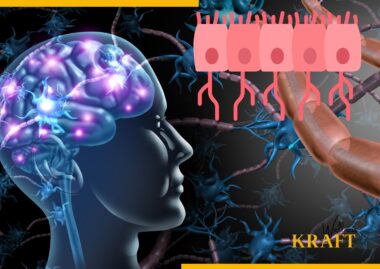Table of Contents
Introduction
The human brain is a marvel of complexity, with many different parts that work together to shape our thoughts, emotions, and behaviors. As a basic element with a multitude of functions and mysteries, grey matter stands out among these components.
What is grey matter in the brain?
Grey matter, also called the grey substance, is a crucial part of the central nervous system. It gets its name from the fact that new, unmyelinated nerve cells looks grey. This important chemical is found mostly in the brain and spinal cord. It stands out because there are a lot of neuronal cell bodies, dendrites, and connections in it.
How Grey Matter Is Made ?
It is made up of two important parts:
1) Neuronal Cell Bodies:
These are where nerve cells, also called neurons, get their power. They are very important when it comes to processing information and sending messages.
2) Glial Cells:
These helper cells feed and protect neurons, making sure they work right. People often say that glial cells are the “caretakers” of the nervous system.
Functions of Grey Matter
It plays a multitude of important roles in the brain, including:
1. Information Processing:
The brain’s information processing epicenter is grey matter. In order for us to perceive and interact with our environment, it receives and decodes sensory information. This ability is important for our daily lives and for making decisions.
2. Motor Control:
The motor cortex, a large area of grey matter, is responsible for controlling muscle movements that are initiated voluntarily. This lets us do everything from simple hand movements to complicated sports feats.
3. Emotional Regulation:
The amygdala and prefrontal cortex are just two examples of the grey matter areas involved in emotional control. They contribute to our ability to understand and control our emotions, which in turn affects how we interact with others and how we feel overall.
How Grey Matter Affects Human Beings

Our daily lives and general wellbeing are greatly influenced by the grey matter in the human brain. It has a profound and complex effect on human beings, affecting different parts of their thinking, emotions, and physical skills. In this part, we’ll look at how grey matter affects people in more depth.
Cognitive Function
1. Information Processing: In the brain, it serves as the information processing epicenter. It receives and decodes sensory information, allowing us to perceive and interact with the environment. Our ability to understand and react to our environment is enhanced when grey matter functions optimally.
2. Memory and Learning: It is closely related to the processes of memory and learning, which are both important. It saves and retrieves information, making it easier to learn new things and gain new skills. Grey matter damage or deterioration can lead to memory issues and learning challenges.
3. Decision-Making: The prefrontal cortex’s grey matter regions are crucial for making decisions and performing executive functions. They help us weigh the pros and cons, plan for the future, and make decisions that are in line with our goals and beliefs.
Emotional Regulation
1. Emotional Understanding: Areas of grey matter involved in emotional processing include the amygdala and anterior cingulate cortex. They help us notice and understand our own emotions as well as the emotions of others. This makes us more empathetic and helps us make friends.
2. Mood Regulation: It helps control mood and maintain emotional stability. Mood disorders like sadness and anxiety can be caused by imbalances or abnormalities in the grey matter.
3. Stress Response: The participation of it in the stress response system can affect how people deal with stressors. The negative effects of long-term worry can be mitigated by healthy grey matter.
Motor Control
1. Voluntary Movements: The motor cortex, a large area of grey matter, is responsible for controlling motions you choose to make. It lets us do simple things like write and walk, as well as more complicated things like play music instruments or play sports.
2. Coordination: The cerebellum’s grey matter helps to balance and coordination. When it works right, it makes sure that moves are smooth and accurate.
Adaptability and Resilience
1. Neuroplasticity: The remarkable property of grey matter known as neuroplasticity enables the brain to adapt and reorganize itself in response to learning, experience, and even injury. This flexibility lets people learn new skills, get better after brain injuries, and deal with changing situations.
2. Cognitive Disorders: Cognitive disorders like Alzheimer’s and schizophrenia are linked to changes in grey matter. These connections can lead to early detection and interventions that may slow or mitigate the progression of these diseases.
How to Increase Grey Matter in Brain

Here are several strategies that may promote the growth or preservation of grey matter:
1. Regular Exercise: Engaging in aerobic exercises like running, swimming, or brisk walking can stimulate the production of brain-derived neurotrophic factor (BDNF), which supports it’s growth.
2. Mental Stimulation: Challenging your brain with activities such as puzzles, chess, learning a new language, or musical instruments can help preserve and even expand grey matter.
3. Healthy Diet: Consuming a diet rich in antioxidants, omega-3 fatty acids, and nutrients like vitamin E and vitamin B12 can support brain health and potentially aid grey matter growth.
4. Adequate Sleep: Prioritize getting enough quality sleep, as this is when the brain undergoes repair and regeneration processes that may influence grey matter.
5. Stress Management: Chronic stress can have adverse effects on grey matter. Practices like meditation, mindfulness, and relaxation techniques can help reduce stress and protect it.
6. Social Engagement: Maintaining social connections and engaging in social activities can have a positive impact on brain health, including grey matter.
7. Learning New Skills: Continuously challenge yourself by acquiring new skills or taking up hobbies that require mental effort and concentration.
8. Mindful Eating: Pay attention to your diet, focusing on foods that support brain health, such as berries, leafy greens, and fatty fish.
9. Aerobic Exercise: Regular aerobic workouts increase blood flow to the brain, supporting grey matter growth.
10. Intermittent Fasting: Some research suggests that intermittent fasting may promote brain health, potentially influencing grey matter.
11. Avoiding Toxins: Minimize exposure to environmental toxins and pollutants that can harm brain health.
12. Limit Alcohol and Drug Use: Excessive alcohol and drug use can have detrimental effects on grey matter, so moderation is key.
13. Regular Brain Challenges: Engage in activities that require cognitive effort, like reading, writing, and problem-solving.
Recent Findings From Research
As our understanding of the brain continues to grow, new research has shed light on some interesting things about grey matter:
1) Neuroplasticity:
The idea of neuroplasticity is among the most fascinating advancements in neuroscience. Grey matter has shown an impressive ability to adapt and change in response to learning, experience, and even injury. This phenomenon emphasizes the brain’s remarkable capacity for change and adaptation over the course of life.
2) Cognitive Disorders:
Recent studies have found strong links between grey matter abnormalities and Alzheimer’s disease, schizophrenia, and other cognitive illnesses. The importance of grey matter health in preserving cognitive performance and mental health is highlighted by these results.
Frequently Asked Questions (FAQs) :
1. What happens when grey matter is damaged?
Depending on which part of the grey matter is hurt, damage to it can lead to a wide range of cognitive and motor problems. A condition that results in the death of nerve cells, a disease, or an injury can be the cause.
2. Can grey matter regenerate?
The brain has neuroplasticity, allowing it to adapt and partially make up for damage, even though grey matter does not regenerate like some other tissues do.
3. Are there lifestyle factors that can enhance grey matter health?
Yes, a healthy lifestyle that includes regular exercise, a balanced diet, enough sleep, and mental stimulation can improve it’s health and cognitive function.
4. How does grey matter differ from white matter?
Grey matter is made up of neuronal cell bodies and connections, while white matter is made up of axons that have been myelinated. It handles information, while white matter helps different parts of the brain talk to each other.
5. Can grey matter be enhanced through cognitive training?
Puzzles and memory games are examples of cognitive training tasks that can help improve the function of the it and cognitive skills.
Key Takeaways
– It is responsible for information processing, motor control, and emotional management.
– Its amazing adaptability ability and connection to a number of cognitive diseases have both been recently discovered.
– It is crucial for keeping cognitive function and overall health to nurture grey matter health through lifestyle choices.
– It is not just a passive bystander; it’s an active and important part of how our cognitive skills work together.
– Scientists and researchers are still interested in its mysteries, which means that more will be found out about them in the future.
Concluding Thoughts
The grey matter is proof of how beautiful and complicated the human brain is. The incredible potential of our minds is demonstrated by its many functions and ability to adapt. As we try to figure out more of its secrets, we may be able to learn more about our own minds and come up with new ways to improve our cognitive skills and mental health.
It is not just a passive part of the brain. It is an active and dynamic force that shapes our cognitive skills, emotional experiences, and physical actions. For a person to lead a happy and productive life, their grey matter must be in good health.
The importance of maintaining brain health through lifestyle decisions that support emotional and cognitive well-being is highlighted by understanding how grey matter affects human beings. Regular exercise, a healthy diet, enough sleep, and mental stimulation are all things that can contribute to it’s working as well as it can and, in turn, to a better quality of life.
We learn more about how to use it for personal development and well-being as we continue to unravel its mysteries through ongoing study. Scientists and people alike continue to be interested in and learn more about the grey matter because it is such an important part of being human.









2 comments
In it something is. Thanks for an explanation. I did not know it.
Hello colleagues, how is everything, and what you wish for to say concerning this piece of writing, in my view its really amazing designed for me.